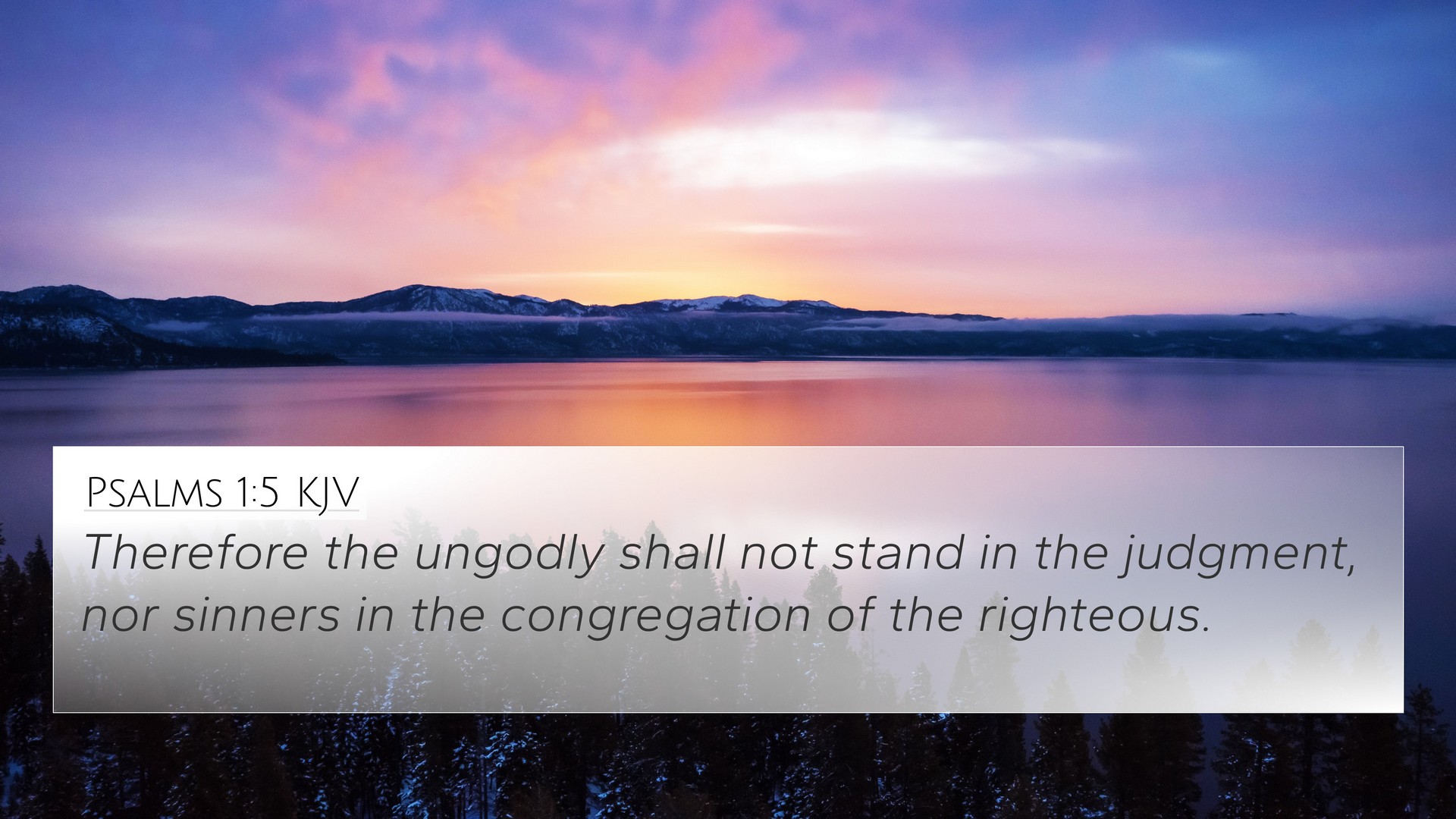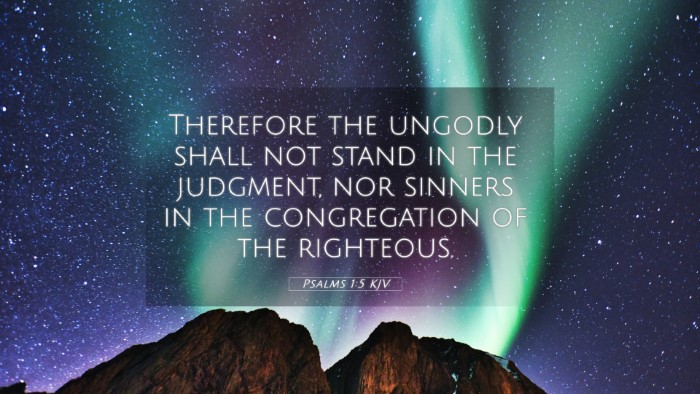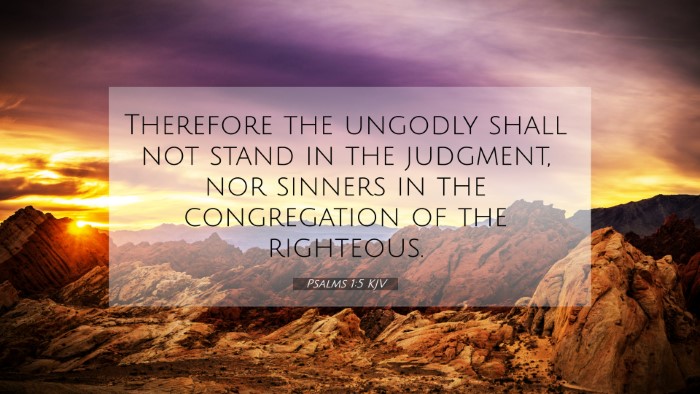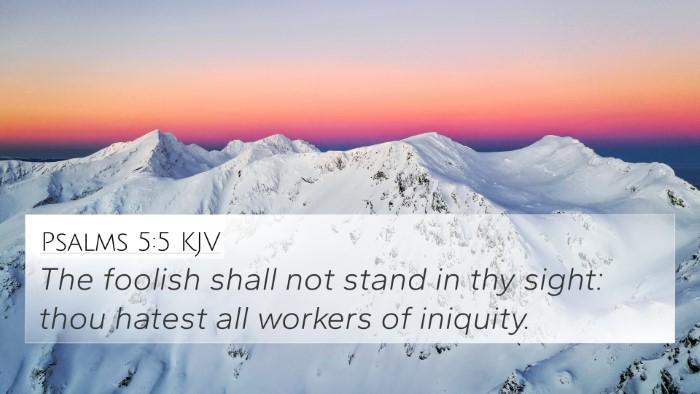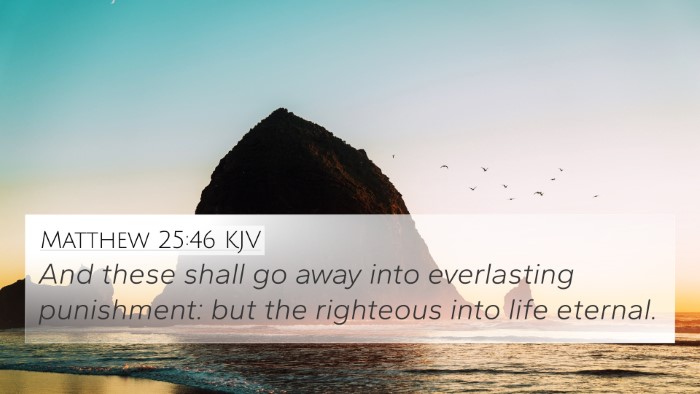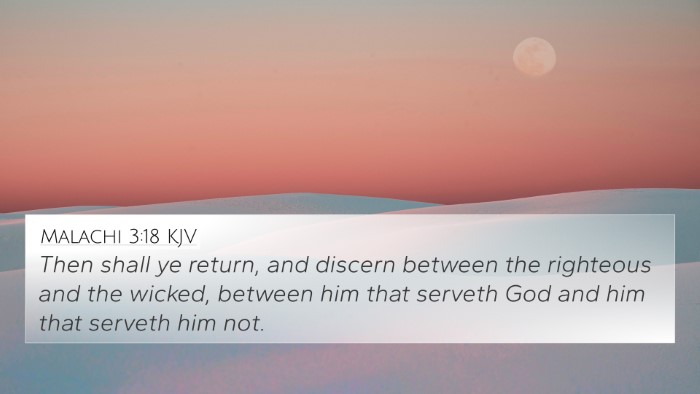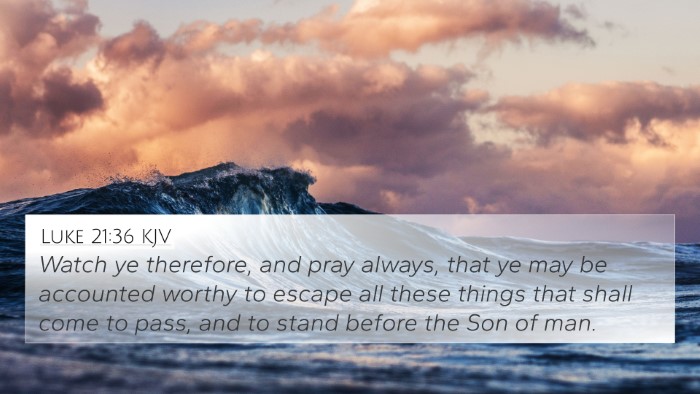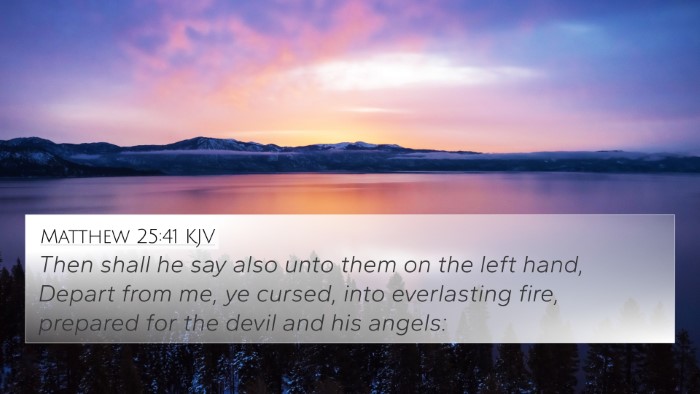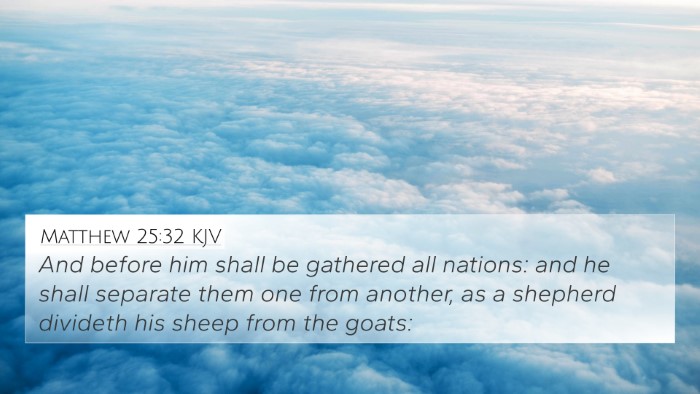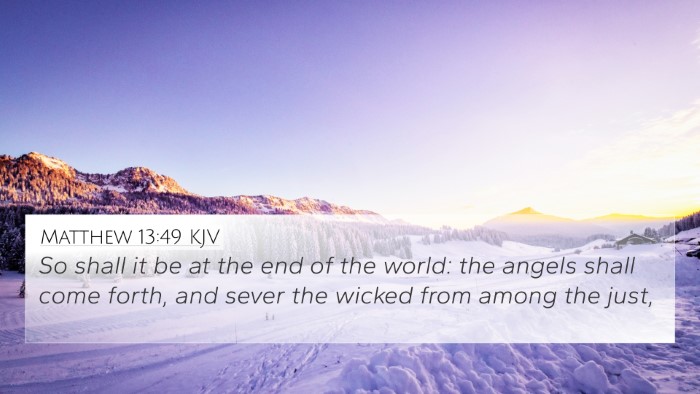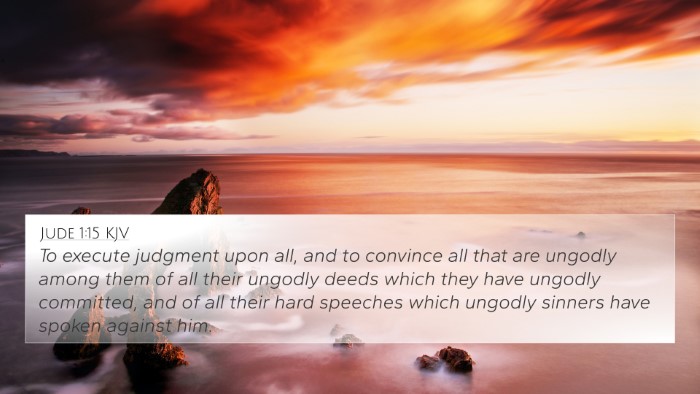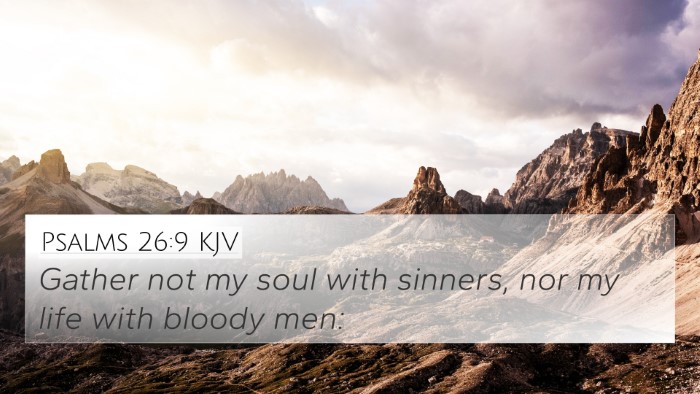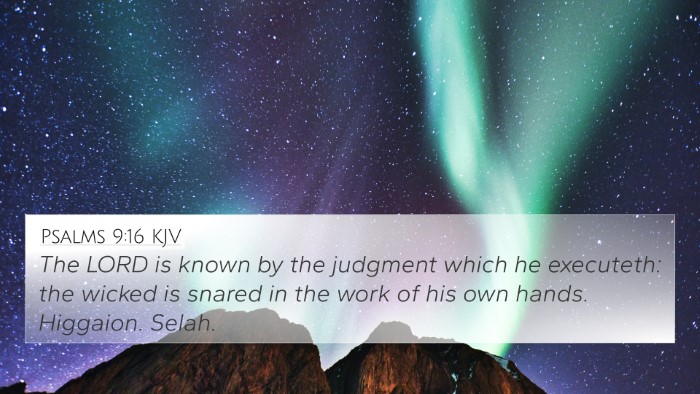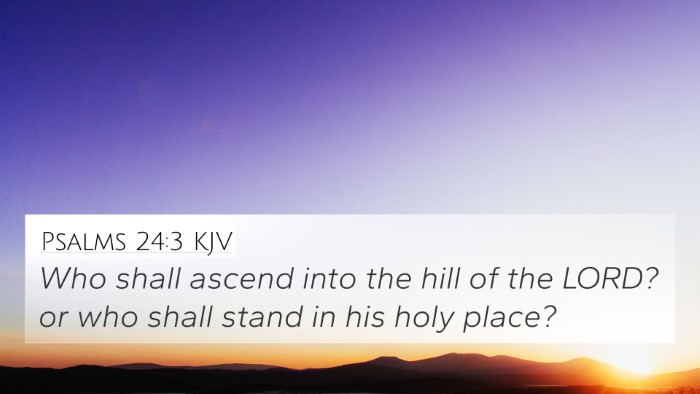Understanding Psalms 1:5
Psalms 1:5 states: "Therefore the wicked will not stand in the judgment, nor sinners in the congregation of the righteous." This verse emphasizes the ultimate fate of the wicked compared to the righteous, concluding that the unrighteous will not endure the judgment of God.
Overview of Key Themes
This verse encapsulates crucial themes regarding judgment, righteousness, and community among believers. Below are insights from public domain commentaries to enhance understanding:
Matthew Henry's Commentary
According to Matthew Henry, this verse highlights the separation between the wicked and the righteous at the final judgment. Henry notes that the wicked lack a firm standing before God and will ultimately be excluded from the assembly of the righteous. This reflects the principle of divine justice.
Albert Barnes' Commentary
Albert Barnes emphasizes that the wicked's fate is portrayed as one of condemnation. He explains that while sinners may enjoy temporary enjoyment and success in this world, they will face judgment and exclusion from the community of believers in the end. This serves as a solemn reminder of the consequences of sin.
Adam Clarke's Commentary
Adam Clarke draws attention to the phrase "in the judgment," interpreting it as a reference to both temporal and eternal judgments. He indicates that those who indulge in wickedness will not be able to withstand the scrutiny of God’s judgment.
Bible Verse Cross-References
To further understand Psalms 1:5, here are relevant cross-references that reflect similar themes:
- Matthew 7:23: "And then will I declare to them, 'I never knew you; depart from me, you workers of lawlessness.'" - This verse illustrates the rejection of the wicked at judgment.
- Romans 14:10: "For we will all stand before the judgment seat of God." - Affirming that everyone will face judgment.
- Revelation 20:12: "And I saw the dead, great and small, standing before the throne, and books were opened. Then another book was opened, which is the book of life. And the dead were judged by what was written in the books, according to what they had done." - The finality of God's judgment on human actions.
- Isaiah 1:28: "But rebels and sinners shall be broken together, and those who forsake the LORD shall be consumed." - Connecting the fate of sinners with that of the wicked.
- Hebrews 10:27: "But a fearful expectation of judgment and of raging fire that will consume the enemies of God." - The dreadful outcome awaiting sinners.
- Proverbs 14:32: "The wicked is driven away in his wickedness: but the righteous hath hope in his death." - Illustrating contrast between the wicked and the righteous.
- Psalm 37:28: "For the LORD loves justice, and does not forsake His saints; they are preserved forever, but the descendants of the wicked shall be cut off." - God's protection over the righteous and the ultimate fate of the wicked.
- John 3:18: "Whoever believes in him is not condemned, but whoever does not believe stands condemned already because they have not believed in the name of God’s one and only Son." - Connecting belief to judgment.
- 2 Thessalonians 1:9: "They will be punished with everlasting destruction and shut out from the presence of the Lord and from the glory of his might." - Eternal consequences for wickedness.
- Galatians 6:7: "Do not be deceived: God is not mocked, for whatever one sows, that will he also reap." - The principle of reaping what one sows relates to judgment.
Connections Between Bible Verses
In studying Psalms 1:5, it's essential to explore how it connects with other Scriptures to form a thematic understanding:
- Judgment: Verses like Matthew 25:46 ("And these will go away into eternal punishment, but the righteous into eternal life") reinforce the message of ultimate judgment.
- Righteousness: Psalms 5:12 highlights that those who are righteous will be blessed by God.
- Community: The concept of community is echoed in Hebrews 12:22-23, where it talks about the assembly of the firstborn and the spirits of the righteous made perfect.
Comparative Bible Verse Analysis
A comparative study of these verses showcases the Bible's consistent teaching on the distinction between the righteous and the wicked. Understanding these Bible verse parallels allows for a deeper insight into God's character and His plans for humanity.
Conclusion
Psalms 1:5 serves as a powerful reminder of the eternal consequences of one's choices, highlighting the importance of living a righteous life according to God's commandments. By engaging in cross-referencing Biblical texts, believers can glean deeper insights and find profound connections that enhance their spiritual understanding.
